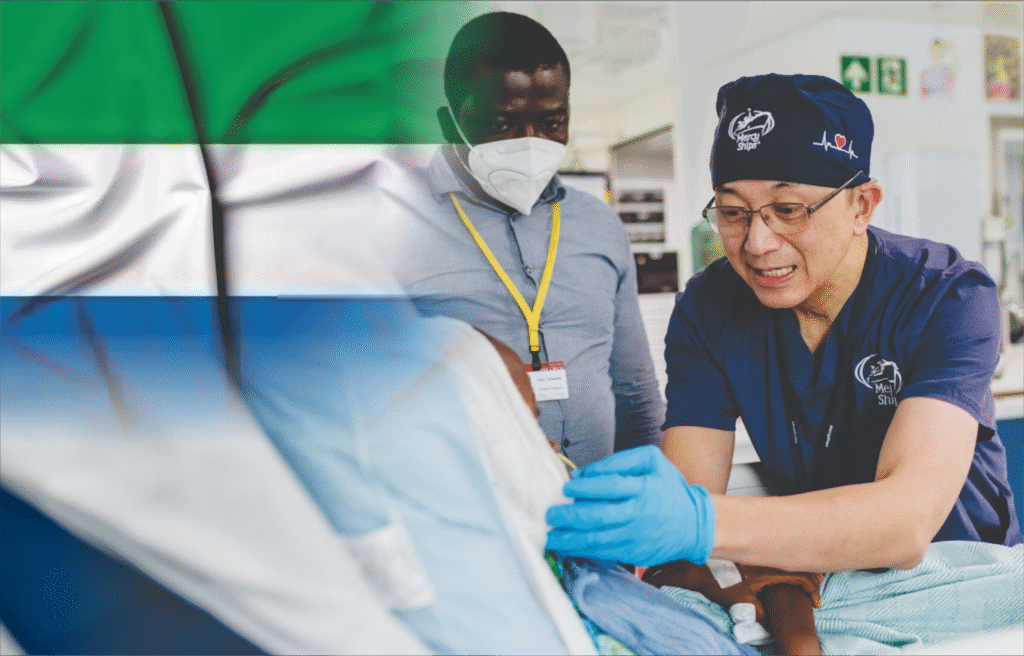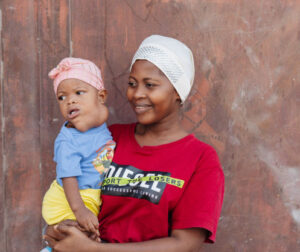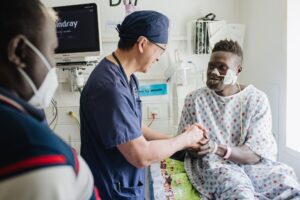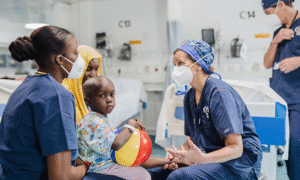Mercy Ships Tackling Surgery Crisis in Sierra Leone, West Africa: with Dr. Leo Cheng Lifesaving Surgeries that Transform Even the Smallest of Lives

In FREETOWN, Sierra Leone, November 3, 2025 – when 10-month-old baby Memunatu was carried into the Global Mercy™, the world’s largest civilian hospital ship, her mother, Aminata, held not only a child but a prayer. A large tumor had formed on the infant’s neck, making it nearly impossible for her to swallow, eat, or even cry. In months, Aminata had searched desperately for help for her child and found none. Until one encounter changed everything.
That encounter came through Dr. Leo Cheng, a British maxillofacial surgeon who has volunteered with Mercy Ships for over 20 years. Mercy Ships is a global humanitarian organization that delivers free, life-changing surgical care and medical training to people in developing nations, with a strong focus on Africa. Operating fully equipped hospital ships such as the Global Mercy and Africa Mercy, the charity partners with governments to strengthen local healthcare systems through education, professional training, and infrastructure development.


Since its founding in 1978, Mercy Ships has performed more than 122,000 surgical procedures and trained thousands of healthcare workers, addressing conditions such as cleft lips, cataracts, and orthopedic deformities. Beyond surgeries, its volunteer professionals also provide dental care and other essential medical services, all at no cost to patients.
Driven by its mission to bring hope and healing to those without access to safe, affordable surgery, Mercy Ships continues to transform lives while empowering nations to build sustainable healthcare capacity for the future.
After examining Memunatu’s scans, Dr. Cheng knew the tumor was not cancerous but was deadly all the same. “Without surgery, her condition would have continued to worsen. It could have become life-threatening” – Dr. Cheng said.
A human story dimension behind a global health crisis: Memunatu’s case represents more than one child’s struggle. It is a reflection of a wider and often invisible crisis, where there is the lack of access to surgical care in low-income nations. The Lancet Commission on Global Surgery estimates that five billion people worldwide cannot obtain safe, timely and affordable surgery. In sub-Saharan Africa, where resources are scarce by governance inappropriateness, this often means that treatable conditions, from hernias to cleft lips and to tumors, become lifelong burdens or even death sentences.

In communities where medical myths persist, untreated deformities also carry cultural and social costs. As noted in some cases – “families face rejection, even accusations of witchcraft or curses. When healing happens, it’s not just physical – it restores dignity, family bonds, and belonging”- explained by Anne-Marie van Tonder, a volunteer nurse from South Africa who first connected Aminata to the on sea hospital ship.
The family and cultural impact of healing goes a long way to assert hope for the future. In the case of Aminata, watching her daughter emerge from surgery, transformed what was more than a medical victory to her, to a rebirth. “People used to turn away when they saw my child, but now, they smile.” she said quietly.
In many African societies, a child’s health affects the entire family’s stance. Access to surgery can therefore alter social narratives, lifting stigma and renewing community ties. Dr. Cheng said that – “when we restore someone’s face, we restore their humanity; and with that, their future too”.
The business, policy and politics of healthcare is ultimate bell-ringer to human existence that cannot be undermined, globally. So, while Mercy Ships provides free surgeries, its mission also exposes a deeper economic truth. That surgical disparity, costs developing nations billions in lost productivity. Untreated conditions keep adults from working and children from learning. Strengthening surgical systems, is not just a humanitarian act but a cornerstone of sustainable economic development and sundry leverages.

Governments across West Africa are beginning to recognize this. Partnerships between ministries of health and non-governmental organizations like Mercy Ships are helping train local surgeons, upgrade hospitals and build national surgical plans. Yet, the gap remains vast.
Hope at Sea and transcending continents. Onboard the Global Mercy Ships, a state-of-the-art floating hospital, staffed with hundreds of volunteers from around the world that occasion medical attentions to moments like Memunatu’s recovery, happen daily. Each operation is a reminder that healing is both a medical and moral imperative, globally.
As the ship sails from port to port, its impact ripples far beyond the ocean into nations, homes, families and permeates lives. With every child’s smile restored, every mother’s tear of relief and every community’s return to hope, there is a quiet global medical revolution powered by selfless-professionals and a heart of charity, which demystifies the inability to access good health services across systems and structures regardless, even with one surgery at a time, driven by Mercy Ships – an international charity based non-governmental organization founded in 1978 by Don and Deyon Stephens in Lausanne, Switzerland.






